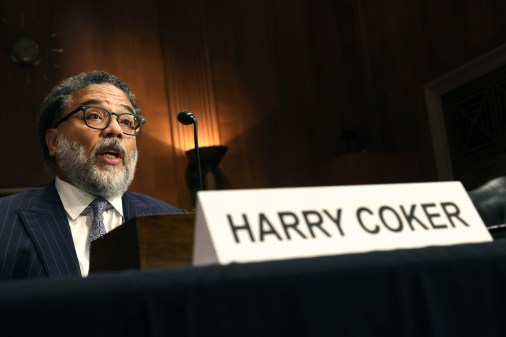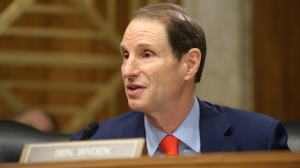Senate Cybersecurity Caucus hopes to unite committees to pass laws
The newly formed Senate Caucus on Cybersecurity — an informal body attempting to draw together the senators most active on the issue — will be successful in proportion to the influence wielded by its members, and the degree to which it can overcome turf disputes between committees, current and former staffers say.
Last week, Sens. Mark Warner, D-Va., and Cory Gardner, R-Colo., announced the creation of a Senate Cybersecurity Caucus. In interviews with Cyberscoop, spokespeople for Warner and Gardner explained that the caucus ultimately aims to break down jurisdictional barriers between Senate committees with oversight on cybersecurity issues.
“No one congressional committee — whether it is the Commerce Committee, or the Banking Committee, or the Intelligence Committee, or any other — can solve the cybersecurity challenge by looking only within its own jurisdiction for solutions,’ a Warner spokesperson wrote in an email.. ‘The Cyber Caucus will be a venue for breaking past those silos and jurisdictional barriers and looking at cybersecurity from a broader perspective.”
Congressional caucuses are informal organizations that vary greatly in their ability to influence lawmakers and eventual policy decisions, explained former Senate staffer Christian Beckner.
The power of these pseudo clubs is typically determined by the effort and resources dedicated by its co-sponsors. In other words, a caucus lives and dies based on its creators’ leadership and more specifically, whether it can attract senators and their staff to attend its meetings.
These events, said Beckner, now at the George Washington University Center on Cyber and Homeland Security, sometimes bring together industry experts and Capitol Hill leaders to better understand technical information about a specific topic. They are usually not open to the public.
While the Cybersecurity Caucus may play a significant role in efforts to craft upcoming legislation, little is known about how the group will operate.
[Read More: Senators launch new cybersecurity caucus]
One goal of the Cybersecurity Caucus — which is led by former tech executive Warner and Gardner, a lawyer — is to educate interested lawmakers, and members of their staff, about cybersecurity, according to staffers.
Beckner described that often when a caucus is focused on a topical issue area — like cybersecurity — and it is also championed by a senator with policy experience in that area, it tends to ‘do better.’
Warner, in this case, has proven to be a leading voice in cybersecurity policy within various debates, including those that intertwine business, defense and privacy.
Over the last several years, Warner, a member of the Senate Select Committee on Intelligence, and Gardner, who sits on the Senate Committee on Foreign Relations, have seen cybersecurity become a more prevalent topic within their respective committees.
The introduction of the Cybersecurity Caucus represents the beginning of a dialogue, staffers said.
Warner previously convened a cybersecurity task force of experts from the private sector and federal government. The task force implored the Virginia senator to consider launching a formal caucus.
When asked if the newly founded caucus aims to tackle a specific, topical cybersecurity issue area — be it encryption or something else — spokespeople said that the caucus has no plans to direct the “conversation in service of a specific agenda.”
Warner and Gardner are also the leading Senate sponsors of a bill to establish a National Commission on Digital Security, which would allow experts to provide recommendations on how Congress should approach digital security while maintaining privacy and security.
In a press release that was originally circulated last week, Gardner stated: “as the cyber threat continues to evolve, so must our strategy … the goal of the Senate Cybersecurity Caucus is to jumpstart discussions.”
Broadly, the caucus will focus on topics related to national security, the economy and defense apparatus. With that being said, Warner’s spokesperson declined to comment on how or if the Senate Cybersecurity caucus would work with its counterpart in the house led by Reps. Jim Langevin and Mike McCaul.



